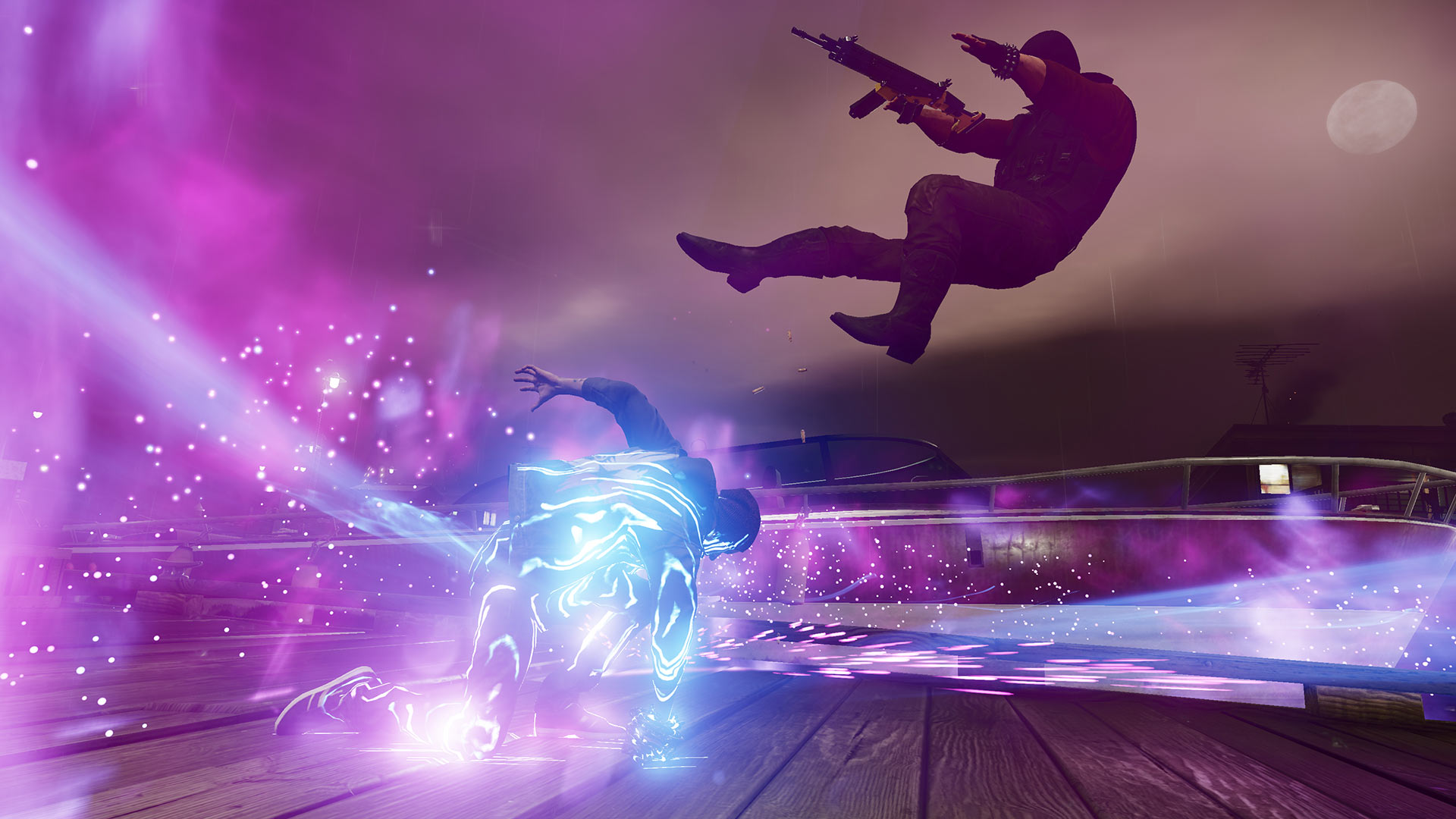GamesRadar+ Verdict
Pros
- +
Fun story and interesting characters
- +
The presentation is magnificent
- +
Creative powers and abilities
Cons
- -
Side content not well-developed
- -
Gameplay isn't as 'next-gen' as the visuals
- -
A bit short for an open-world game
Why you can trust GamesRadar+
Every kid dreams of having superpowers. Hell, when I was five years old, I tucked a blanket into the back of my shirt, stood in the doorway to my parents' basement, yelled "I'm Superman!" and threw myself down a flight of stairs. Turns out, I couldn't fly. But while playing inFamous: Second Son, an open-world in which you have access to plenty of powers, I forgot about that trip to the emergency room--I might not be able to teleport or shoot magic out of my hands, but you know what? Delsin Rowe can, and as I launch charcoal into enemies' throats and fly above the streets of Seattle, I can't help but smile. Second Son does a fantastic job of making you feel incredibly powerful in unique ways, even if this PS4-exclusive relies a little too heavily on filler content to pack its open-world with stuff to do.
The game's hero (or antihero, should you choose to go down that path) knows how cool his powers are. InFamous' Delsin Rowe quickly transforms from a boring "Oh no, I have special abilities, what does this mean?" character into a guy who is incredibly pleased to be able to blast smoke bombs at his foes. When Rowe travels to Seattle to make a stand against the obviously evil Department of Unified Protection, he's still unsure what to make of his gift. But before too long, he's snarkily correcting others on the political incorrectness of using the bigoted term "bio-terrorist" when people like him prefer to be called "Conduits". His sense of humor and personality is unique, making Delsin a more relatable, likeable character.
But Rowe's witty demeanor isn't the only thing that makes him stand out--his powers are equally unorthodox. Previous inFamous games gave their heroes control of traditional elements, but Delsin's ability to wield smoke is unique. Tossing smoke bombs, zipping through vents, and shooting black exhaust-fumes into enemies' faces is oddly satisfying, and takes advantage of the game's particle system and high-fidelity graphics (which, as you might guess, are stupidly beautiful). The powers you unlock throughout inFamous make exploring Seattle a treat, enhancing the otherwise humdrum act of navigating the city to liberate the streets of DUP control.
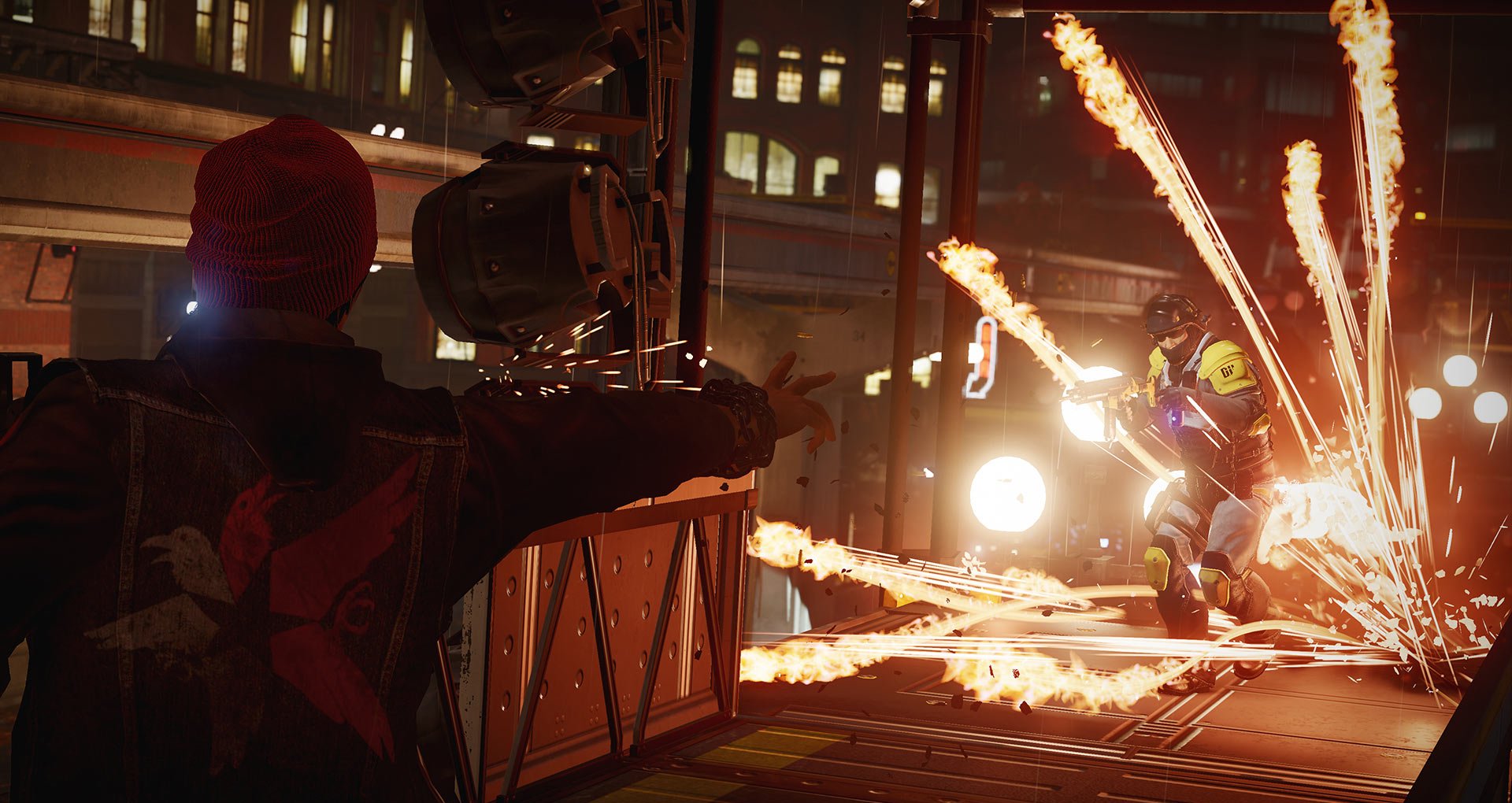
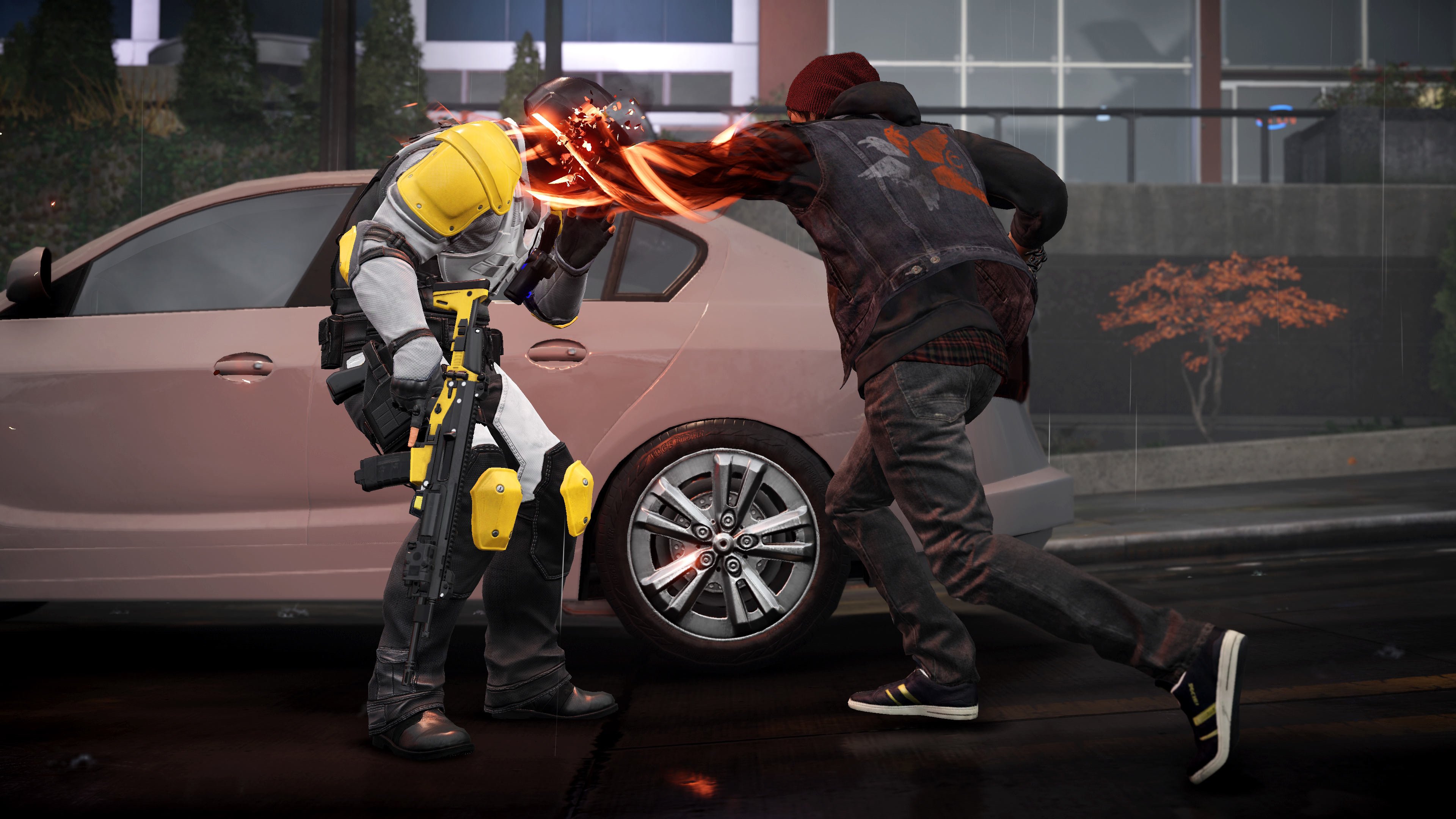
Delsin is a self-proclaimed "Conduit sponge", meaning he can absorb abilities from other super-powered individuals he meets. While most are unveiled organically during the story, one is part of a side mission called 'inFamous Paper Trail', which will appear a few weeks after release. I was only able to play the first mission (since the rest weren't available), but it had me chasing a Conduit with the power of… paper. It might sound lame, but it looked really cool, and I desperately want to soak those powers for my own.
Actually, kicking the DUP out of Seattle is really the only thing to do between completing story missions. The actual act of battling enemies stays fun throughout, thanks to a steady stream of new powers and upgrades; you'll constantly go out of your way to blow up an enemy base or pick fights with a group of Conduit-hating baddies. Other missions have you seeking out and destroying DUP quadrocopter drones, battling drug dealers, finding hidden audio logs, and… well, that's about it.
You're never really doing anything different from zone to zone, and while the act of taking out DUP checkpoints and chasing down audio logs might never turn full-on boring, it definitely loses its freshness the further you get. The story itself is enjoyable and unpredictable at times, but even with the side missions, it's a bit paltry when put up against others in the genre. You can finish the main game in just over 10 hours, and you'll easily be able to complete every side mission and optional objective in only a few more.
When the credits roll, you'll be left wanting, especially because you'll be in love with just how good the game looks. Odds are you won't be able to tell that Delsin Rowe's head is composed of 60,000 triangles, and I doubt you'll count the 11,000 individually textured pieces of ash that flutter about every time he uses his smoke power, either. You will, however, be able to admire just how good it all looks in motion.
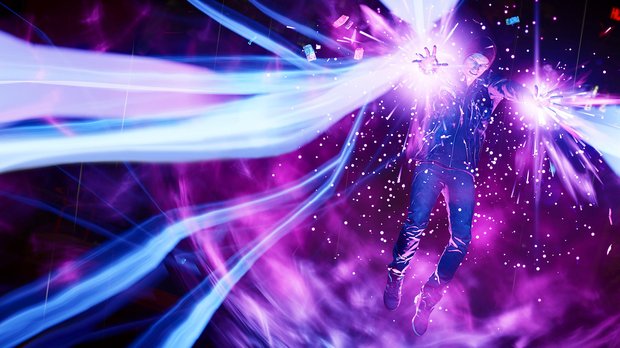
Everything is crisp and clear, detailed and stylish, bringing a level of graphical fidelity not seen in other games. Delsin's clothing stretches realistically when he moves, and the neon blasts that fire from his hands light up the shiny puddles in the streets. The freaking bricks that make up the game's buildings look like real bricks.
Sucker Punch hasn't recreated Seattle block for block, but it does manage to capture the atmosphere of the real city in this digital world. And though the city itself is beautiful, filled with details, jokes, and Easter eggs for the eagle-eyed gamer (Sly Cooper references everywhere), it feels weirdly artificial. Yeah, it's a video game, so some level of that’s to be expected, but the problem is mostly in the ways people react to Delsin.
Almost instantly they're either totally on your side, or completely against you. By the time I made my mark by way of moral choices (which occupy the typical BLATANTLY AND REMARKABLY EVIL or A NORMAL THING A PERSON MIGHT DO territory), I was deadened to their praise--the Seattleites had been yelling about me since the moment I stepped into the city, so it almost felt like I was the star of a reality show instead of actually having a meaningful impact. It's so binary that, at times, it almost feels satirical.
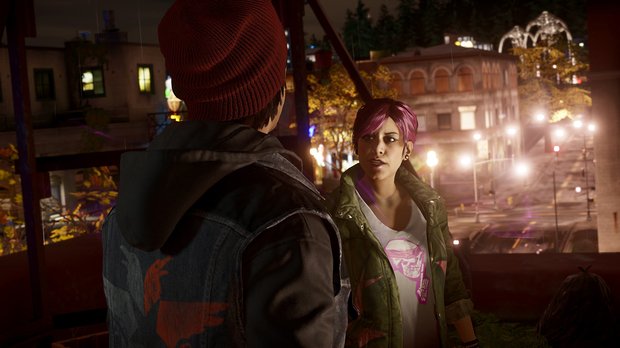
The influence of morality on gameplay is actually more impressive, and manages to shape the way you play in clever, organic ways. Different skills are unlocked depending on your playstyle, and you're rewarded with positive karma for debilitating enemies instead of going on killing sprees. It's done in a way that makes sense, and makes you think twice before having Delsin shoot a blast of neon light into a car for no reason… unless you're playing as an evil character, in which case you're rewarded for wanton murder. The differences in gameplay are actually fairly significant, and you might be compelled to complete the game a second time in order to see what the other side of the morality coin looks like. That might not serve as a great stand-in for additional content, but it's better than nothing.
If you're looking for a next-gen showpiece to demonstrate the power of PlayStation 4, inFamous: Second Son will definitely do the trick--it looks great, plays well, and gives you a dozen or so hours of city to explore. The gameplay itself isn't all that revolutionary, but the stellar presentation and enjoyable characters assure you'll enjoy your trip to Seattle--even if you'll wish there was more to do there.
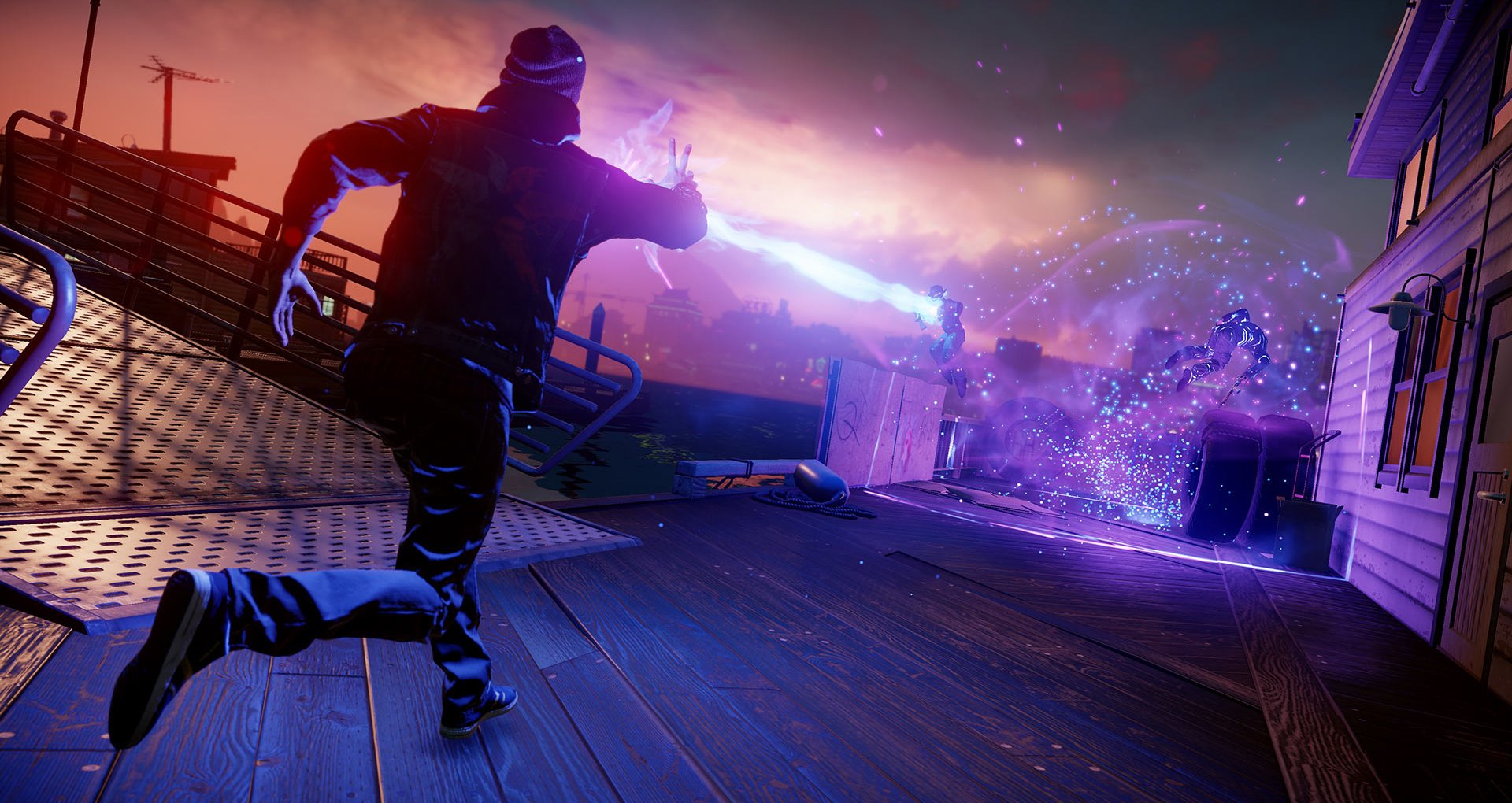
A beautiful game with a handful of interesting ideas that simply doesn't give you enough to do with its tools. Second Son is a great example of the PS4's power, and works as a decent stop-gap until bigger and better exclusives appear.
More info
| Genre | Action |
| Description | Sucker Punch's latest IP for the PS4. |
| Platform | "PS4" |
| US censor rating | "Teen" |
| UK censor rating | "" |
| Release date | 1 January 1970 (US), 1 January 1970 (UK) |
Hollander Cooper was the Lead Features Editor of GamesRadar+ between 2011 and 2014. After that lengthy stint managing GR's editorial calendar he moved behind the curtain and into the video game industry itself, working as social media manager for EA and as a communications lead at Riot Games. Hollander is currently stationed at Apple as an organic social lead for the App Store and Apple Arcade.
